We decided last night that we would not stay a second night at Camping Vrachos, although I did do it an injustice in last night’s blog. The toilet block was one of the best we have come across in the last 12 weeks. The toilets even had seats and paper! Quite an achievement in either Italy or Greece, I’ll tell you.
Mr. Scops Owl nearly caught up with me last night, I could hear him in the distance, but I hope our unexpected move will have thrown him off the scent.
The plan was to visit one or two of the recommended monasteries, have a general drive round the area to see their spectacular positions and then spend the rest of the day driving to Vergina, our next stop. So we checked out and set off to the monastery whose interior was most recommended in the guidebook.
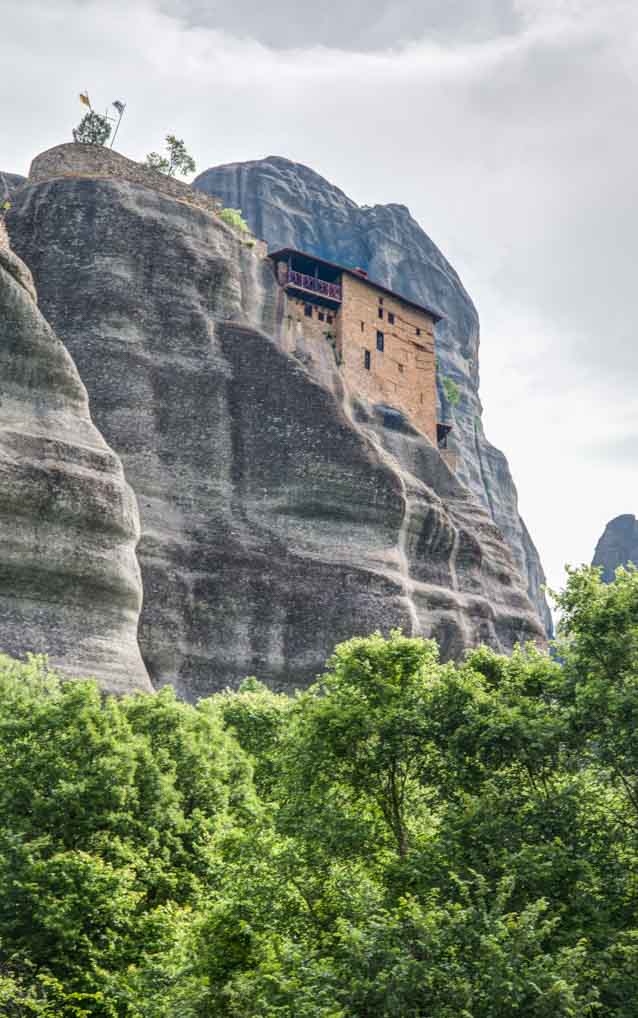
Monastery Meteora
The history of these monasteries is that in the 14th century, hermits and monks seeking solitude set up monasteries on the top of inaccessible pinnacles of rock which rise from the plain in this part of Greece. They were initially assisted by villagers who had to make the initial ascents of these fingers of rock to enable the necessary winches and pulleys to be set up to haul up the building materials. The rocks in this area are still popular with rock climbers and they are mostly graded advanced or higher and the villagers did these climbs without the assistance of modern rock climbing gear.
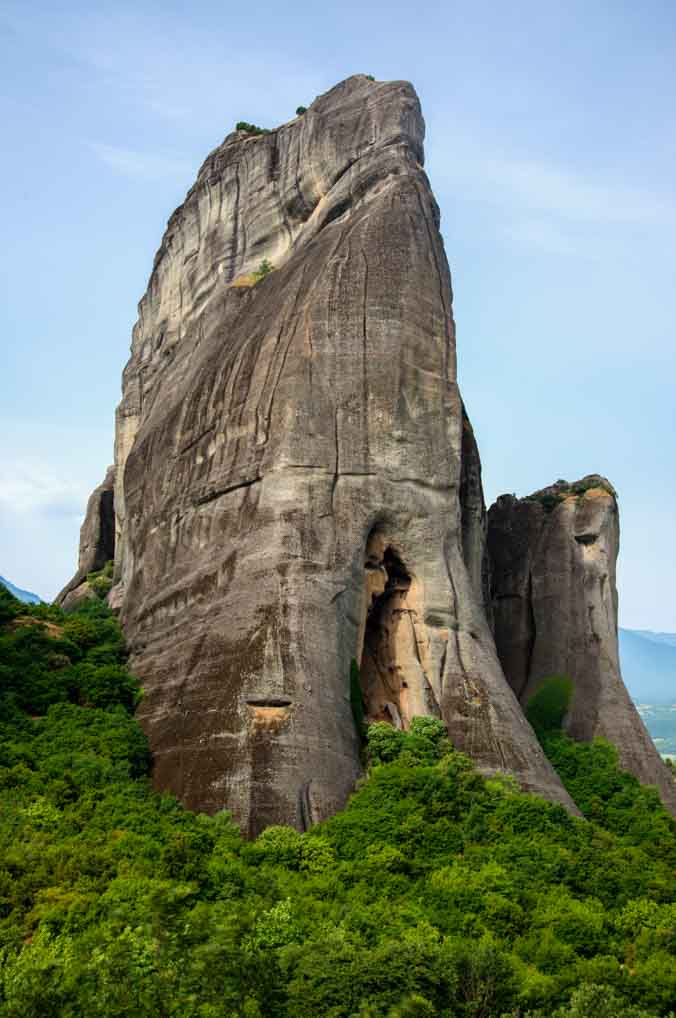
Rock Formation – Meteora
Once established, access to the monasteries could only be achieved by being hauled up in a basket or via ladders. A visiting abbot once asked how often the rope to the basket was renewed, the response – “when it breaks” – was a shock to him. Eventually a 19th century bishop insisted that steps be cut into the rock, to make access safer.
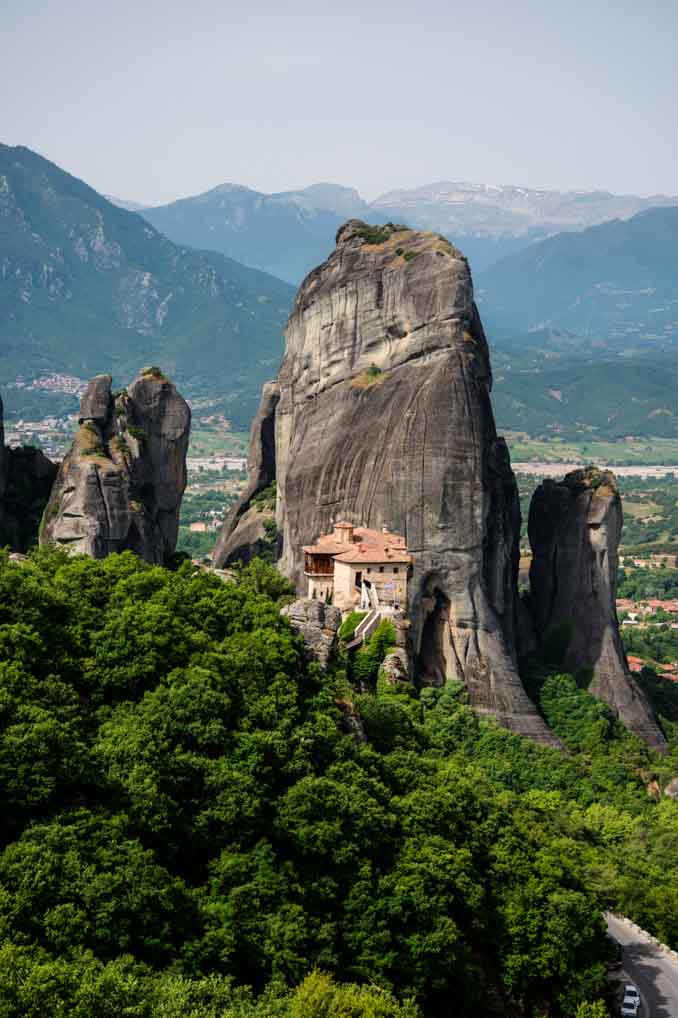
Monastery Meteora
There are now only 6 active monasteries left and all but 50 or so monks have moved to more peaceful locations since the sites were awarded UNESCO World Heritage status and the tourist hordes arrived.
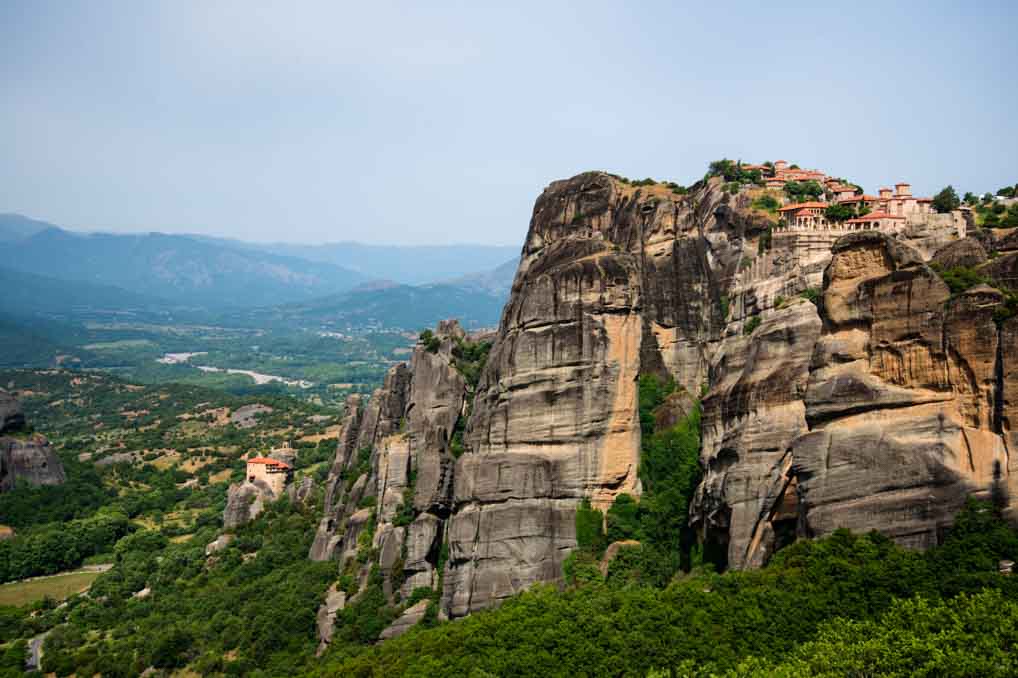
Monasteries Meteora (3 if you look hard)
We know how the monks feel, because as we approached the first monastery the number of coaches was unbelievable. Far more than we have seen at large sites like Olympia, and the occupants were all crammed into this tiny monastery. We immediately decided that was not for us. Never fear though, the second recommended monastery was less than a mile away and when we arrived the car park was virtually empty. Great we thought. As we walked up the gate we found the reason for our good fortune, the monastery was closed on a Friday!
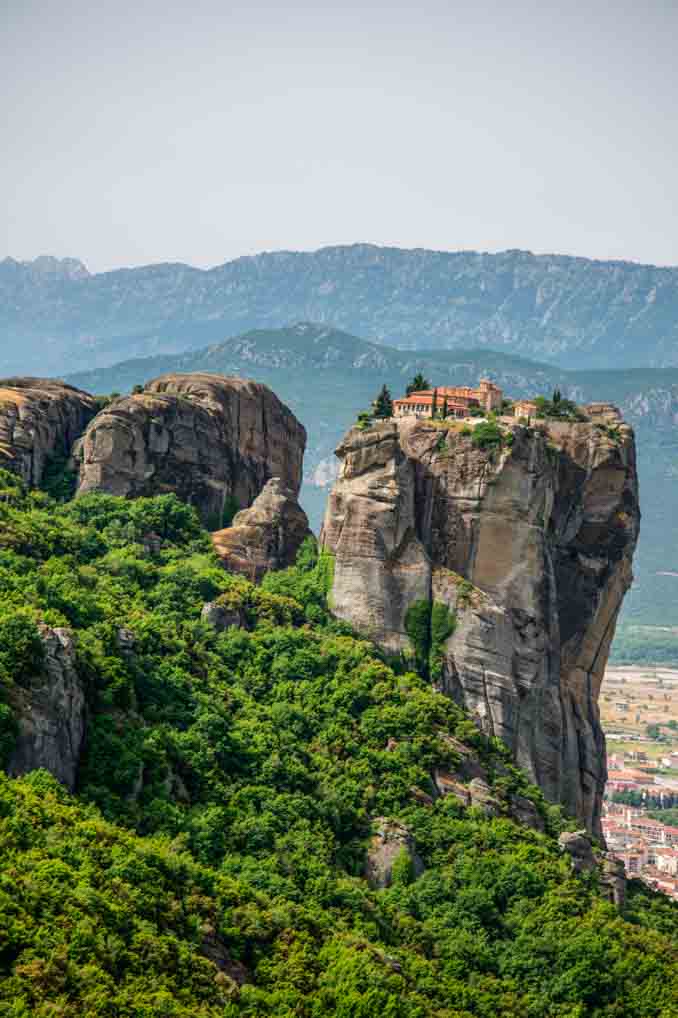
Monastery Meteora
So in the end Basil took us on a tour of the monasteries which we viewed from the outside. In reality it is their precarious locations and the geology itself which are the attraction, not the monasteries themselves. My view is that this is one of the most stunning sites in Europe and should be on any list of things to see in Europe, let alone Greece.
We next set off for Vergina, about 100 miles east. The journey was uneventful, apart from seeing a tortoise, dark brown squirrels and several signs saying “beware of bears”! Unfortunately we didn’t see any bears, but I think we are in bear country more or less from here to northern Norway so we may get lucky.
Our journey was quick enough that we arrived in Vergina early enough to visit the main attraction there, which is the tomb of Phillip II of Macedonia, the father of Alexander the Great, who died about 300 BC. His tomb, together with that of an unknown Prince, thought possibly to be Alexander’s son, was only discovered in 1977. It was found under a huge tumulus and the archeologists have been very imaginative, by leaving the tomb essentially buried, but with a walkway down to the elaborate tomb frontage. Visitor cannot go inside because of the risk of damage.
Above the tombs, but still buried underground, is a large museum displaying the enormous number of grave goods found in the tomb, including armour, weapons and exquisite gold crowns and jewellery.
I thoroughly enjoyed it and felt, for once, €12 may be justified. Phillip II transformed ancient Greece by making Macedonia the dominant power in the region and Alexander, of course, was arguably pivotal in the beginnings of European civilisation, by spreading Hellenic culture so . To be in the presence of items which were known to both of them was thought provoking.
Our intention for an overnight stop was a well known camperstop in Vergina, but when we arrived we were told that a group of 22 Dutch campers were expected and so we could not stay. However, the owner kindly directed us to a large, empty, car park nearby (40.484474, 22.322691), where we can stay for the night free of charge. Also in the car park is another British motorhome with whose owners we have already had a long chat.
Tomorrow we head to the coast for a last session of sea, sun and sand before we head into Bulgaria next week. It is forecast to be 35 degrees, so we are also hoping for a sea breeze!
